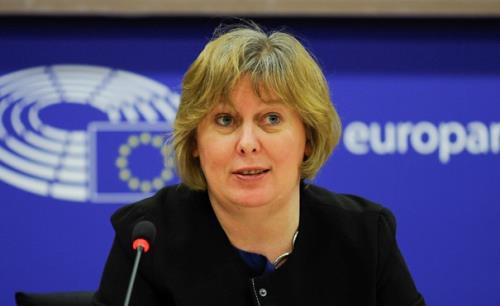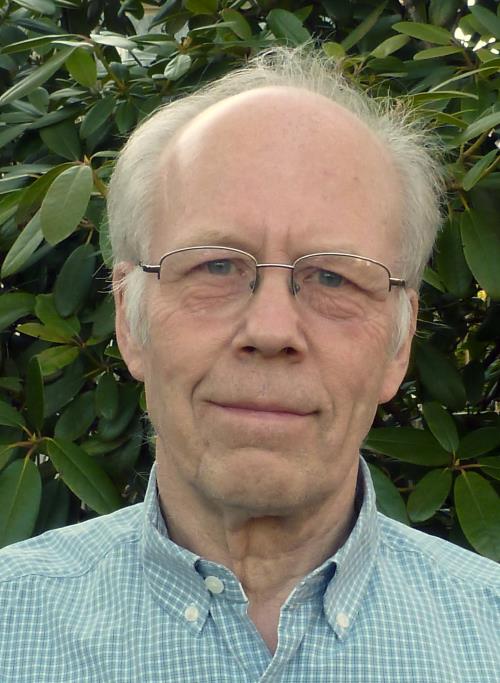Relay Services: What they are, who they are for, and how they began
ITU-T Joint Coordination Activity on Accessibility and Human Factors
Session 360
Moderator: Andrea Saks (USA)
1. Lidia Best (UK), KPI development and need to detailed research of relay services or systems in current existence
2. Seth Bravin (USA), T-Mobile
3. Yasunobu Ishii (Japan), Relay Services in Japan
4. Gunnar Hellstrom (Sweden), Pioneer in Relay Services, Standardization and legal framework
5. Other Relay Service experts and pioneers to support the following discussions on Relay Services: Beat Kleeb (Switzerland); Matjaz Debevc (Slovenia) Christopher Jones (UK)
American Sign Language interpretation and British Sign Language interpretation will be available for this session.

She grew up in the midst of the emerging TTY movement with her parents, Andrew and Jean Saks who were founder members of TDI when it was called Teletypewriters for the Deaf now called Telecommunications for the Deaf and Hard of Hearing Inc. Andrea was the first person to bring text telephony to Europe and the UK in 1973.
In 1975, she lobbied extensively to establish the First Deaf Transatlantic call via TTY, (early textphones for persons who were Deaf and Hard of Hearing), between two governments, the USA and the UK after establishing five TTY stations in the UK. Two APCOM modems, (Applied Communications Inc. created by her father, Robert Weitbrecht and Jim Marsters, was first company to make a “text phone modems, “Phonetypes” connected to teleprinters, the printing device), were used for the call with local teleprinters. One Phonetype station was in Washington DC, USA at HEW (Department of Health Education and Welfare), and the other station was in London UK, as a part of the first International Telecommunications equipment exhibit at the US Trade Centre.
She has served as a TDI delegate along representing the deaf and hard of hearing, in activities of the International Telecommunications Union (ITU) since 1991. She is the chairperson of the Joint Coordination Activity on Accessibility and Human Factors at ITU (JCA-AHF). She also represents other disability organizations like the Global Initiative For Inclusive ICTs (G3ict) and the International Center for Disabilities Resources on the Internet. A great number of accessibility initiatives, Inclusive International Standards and Recognized Technical Papers on Accessbility access and many events at ITU took off, thanks to her leadership and dogged persistence along with the support of an international group of Persons with Disabilities. She is active in all three sectors of the ITU.

Lidia is a co-vice Chair of ITU JCA-AHF ( International Telecommunication Union Joint Coordination Activities on Accessibility and Human Factors), Chairman of the National Association of Deafened People (NADP) in the UK, and President of European Federation of Hard of Hearing People (EFHOH). She is internationally recognised accessibility expert and advocate for persons who are deaf or hard of hearing. She brings unique knowledge as expert with lived experience, as a person who is hard of hearing and a cochlear implant user since 2009.
Her work has specific focus on accessibility, policy development, innovation and quality of hearing care for deaf and hard of hearing people including policy development, training, and consulting. She contribute to work on standards as a member of G3ict delegation to ITU to standards in telecoms, captioning and assistive listening devices. Lidia is an editor of the ITU FSTP-RCSO “Overview of remote captioning services" and H.871“Safety requirements for wearable audio augmenting devices” the recommendation on personal sound amplifiers.

Seth Bravin manages strategic alliances for T-Mobile, a telecommunications company in United States. T-Mobile Accessibility provides a comprehensive array of accessible communication services to bridge the telecommunications gap for people who are deaf, hard of hearing, deafblind, blind, low-vision or have a speech disability. Before joining T-Mobile, Mr. Bravin served as associate director of technology access at George Washington University where he led the university’s accessibility initiatives. He previously worked at IBM for more than a decade where he held strategy and finance roles with several business units including IBM Accessibility and IBM Global Public Sector. He participated in IBM's Corporate Service Corps program in Indonesia and worked with a disability non-governmental organization on several accessibility initiatives.
Mr. Bravin earned an MBA from Cornell University, and a Bachelor of Science degree in Business Administration and Finance from Gallaudet University. He currently serves on the Board of Trustees of Gallaudet University and the Board of Trustees of Lexington School and Center for the Deaf.

In 1984, he started his career as the staff of trading the Japanese biggest trading firm Mitsubishi Corporation.
He changed his career to the Not for Profit sector from since1995 and joined The Nippon Foundation and launched many projects supporting accessibility of Persons with Disabilities mainly in South East Asian countries.
In 2013, he also launched the model project of Telecommunications Relay service in Japan and advocated to establish the law to sustain the service as a public service.
Education:
MA in Economics, Dalhousie University, Canada
BA in Economics, Konan University, Japan

Gunnar Hellström is the managing director of GHAccess located in Sweden. Gunnar has worked internationally the last 29 years in the area of design, implementation, research, project management and standardisation of accessible interpersonal communication solutions for cases when other media than voice is essential. Gunnar pioneered the establishment of video relay services in the 90's and has promoted efficient use of sign language, real-time text and voice through contributions to international standards on these topics in many standards bodies.
-
 C1. The role of governments and all stakeholders in the promotion of ICTs for development
C1. The role of governments and all stakeholders in the promotion of ICTs for development
-
 C2. Information and communication infrastructure
C2. Information and communication infrastructure
-
 C3. Access to information and knowledge
C3. Access to information and knowledge
-
 C4. Capacity building
C4. Capacity building
-
 C9. Media
C9. Media
-
 Goal 4: Ensure inclusive and equitable quality education and promote lifelong learning opportunities for all
Goal 4: Ensure inclusive and equitable quality education and promote lifelong learning opportunities for all
-
 Goal 8: Promote inclusive and sustainable economic growth, employment and decent work for all
Goal 8: Promote inclusive and sustainable economic growth, employment and decent work for all
-
 Goal 11: Make cities inclusive, safe, resilient and sustainable
Goal 11: Make cities inclusive, safe, resilient and sustainable












